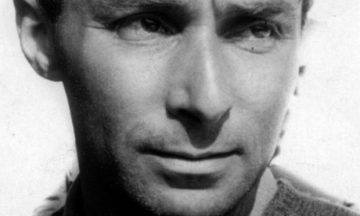Sam Jordison in The Guardian:
 Nothing belongs to us any more; they have taken away our clothes, our shoes, even our hair; if we speak, they will not listen to us, and if they listen, they will not understand. They will even take away our name: and if we want to keep it, we will have to find our strength to do so, to manage somehow so that behind the name something of us, of us as we were, still remains.” So Primo Levi describes the beginning of the process of “the demolition of a man”, the “offence” that Auschwitz inflicted on so many people. “Häftling,” he writes in If This Is a Man, using the German word for prisoner, “I have learned that I am a Häftling. My name is 174517.” Throughout If This Is a Man, Levi reiterates that survival was mainly a matter of random events, coincidences and fortune. But it also required stubborn resistance. As Levi explains an afterword, he remained “determined to recognise always, even in the darkest days, in my companions and in myself, men, not things.”
Nothing belongs to us any more; they have taken away our clothes, our shoes, even our hair; if we speak, they will not listen to us, and if they listen, they will not understand. They will even take away our name: and if we want to keep it, we will have to find our strength to do so, to manage somehow so that behind the name something of us, of us as we were, still remains.” So Primo Levi describes the beginning of the process of “the demolition of a man”, the “offence” that Auschwitz inflicted on so many people. “Häftling,” he writes in If This Is a Man, using the German word for prisoner, “I have learned that I am a Häftling. My name is 174517.” Throughout If This Is a Man, Levi reiterates that survival was mainly a matter of random events, coincidences and fortune. But it also required stubborn resistance. As Levi explains an afterword, he remained “determined to recognise always, even in the darkest days, in my companions and in myself, men, not things.”
Levi holds on to this humanity until the camp is liberated. But he has been hollowed out by hunger, toil and unremitting horror. His sense of self has been undermined by mental and bodily weakness and the moral compromises needed for survival. If This Is a Man finishes with Levi in a kind of perilous limbo. He hasn’t “drowned”, as he terms it, but nor does he show us much about salvation. The last pages are strange and abrupt. The Russians arrive as Levi and a companion – Charles – are carrying a corpse outside their hut. They tip over the stretcher. Charles takes off his beret; Levi regrets he doesn’t have one too. We get a hint that Levi has resumed life, because he tells us he’s been writing letters to other survivors. And that’s it.
It’s in the sequel The Truce that Levi tells us how he rebuilt his humanity after it was demolished in Auschwitz. It’s a long climb into the light and – remarkably – it’s frequently beautiful. More than that, it’s funny.
More here.
